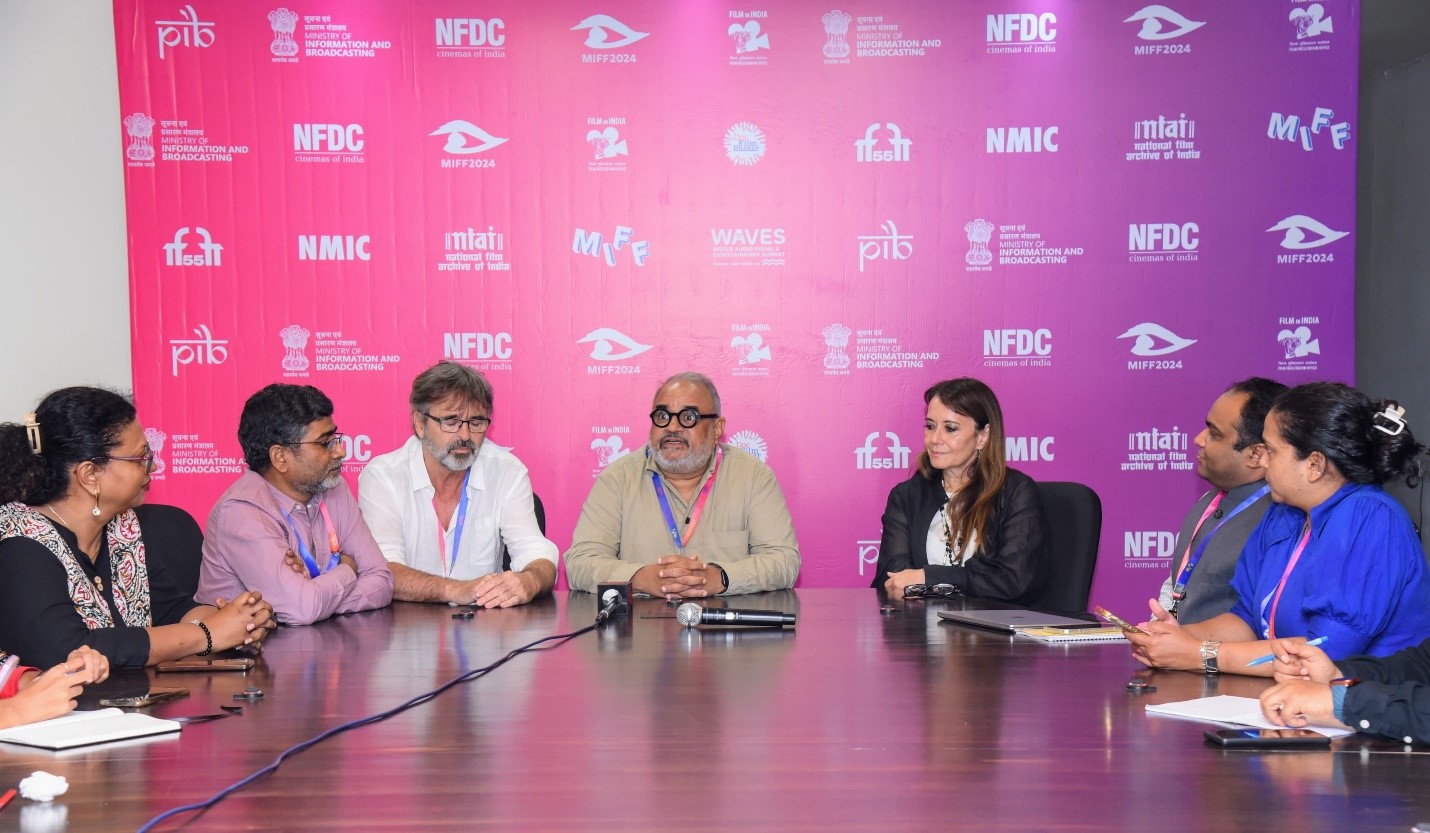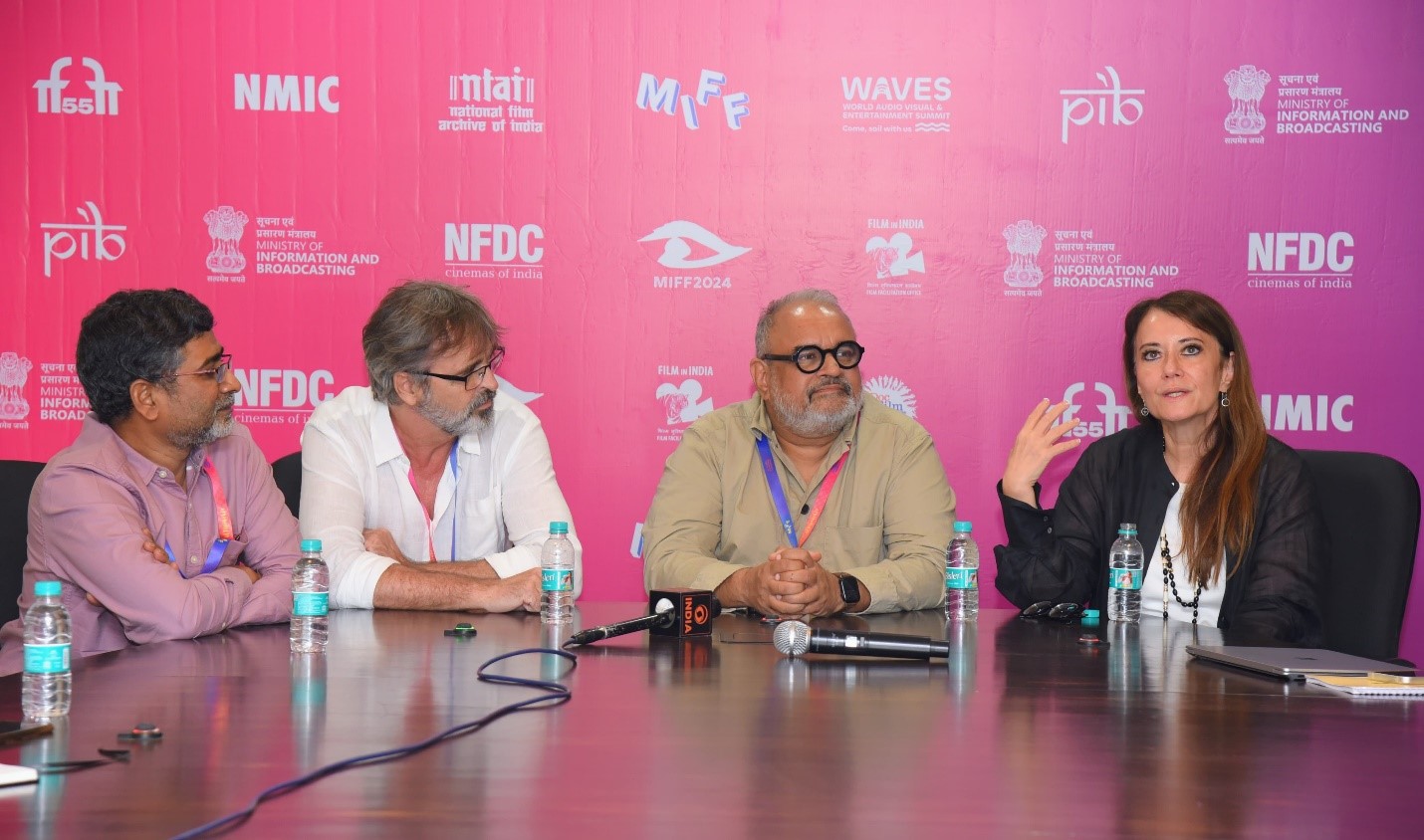The Jury members of the International Competition at the 18th Mumbai International Film Festival (MIFF) today addressed a Press Conference, sharing their insights and experiences from the challenging selection process of this year’s films.

Jury Chairperson and award-winning Indian filmmaker Bharat Bala lauded the compelling and competitive nature of the films. Emphasizing the universality of human stories despite varied cultural narratives, Bala highlighted the importance of showcasing documentaries on big screens. “We have amazing infrastructure in India. We just need to take the bold decision and put documentaries on the big screen,” he stated. Bala also urged for greater exposure to documentary films among students in India, believing that this would expand their intellect and foster a culture of non-fiction filmmaking. “We become more human by watching documentaries,” Bala added.
Barthélémy Fougea, a global force in documentary filmmaking, focused on the importance of content during the selection process. He stressed that promoting documentary films is essential for the advancement of knowledge and culture. “Documentary films mean transmission of mission,” Fougea said. He urged India, with its rich socio-cultural heritage and vast talent pool, to increase its production of documentaries. “The more we collaborate, the more universal we become,” Fougea emphasized, underlining the value of international cooperation.

Keiko Bang, an internationally acclaimed documentary filmmaker, shared her perspective on the diverse views during the selection process, calling the final interpretation both fascinating and enriching. She noted that while styles and patterns of expression differ, the language of film remains universal. Highlighting the medium’s importance, Bang said, “Medium is the message. It is the medium which makes the content appealing most of the time. So documentary films should be featured on the big screen.”
Manas Choudhury, an acclaimed sound designer in the Indian film industry, described the selection process as tough and challenging, yet interesting due to the diverse perspectives and views on the films. He acknowledged the significant improvement in the quality of Indian non-fiction films over the years, in both content and technical aspects.
The Jury members collectively expressed their admiration for the high standards and diverse range of topics covered by this year’s entries. Their discussions underscored the universal appeal of human stories and the critical role documentaries play in promoting knowledge and cultural understanding.
 Matribhumi Samachar English
Matribhumi Samachar English


